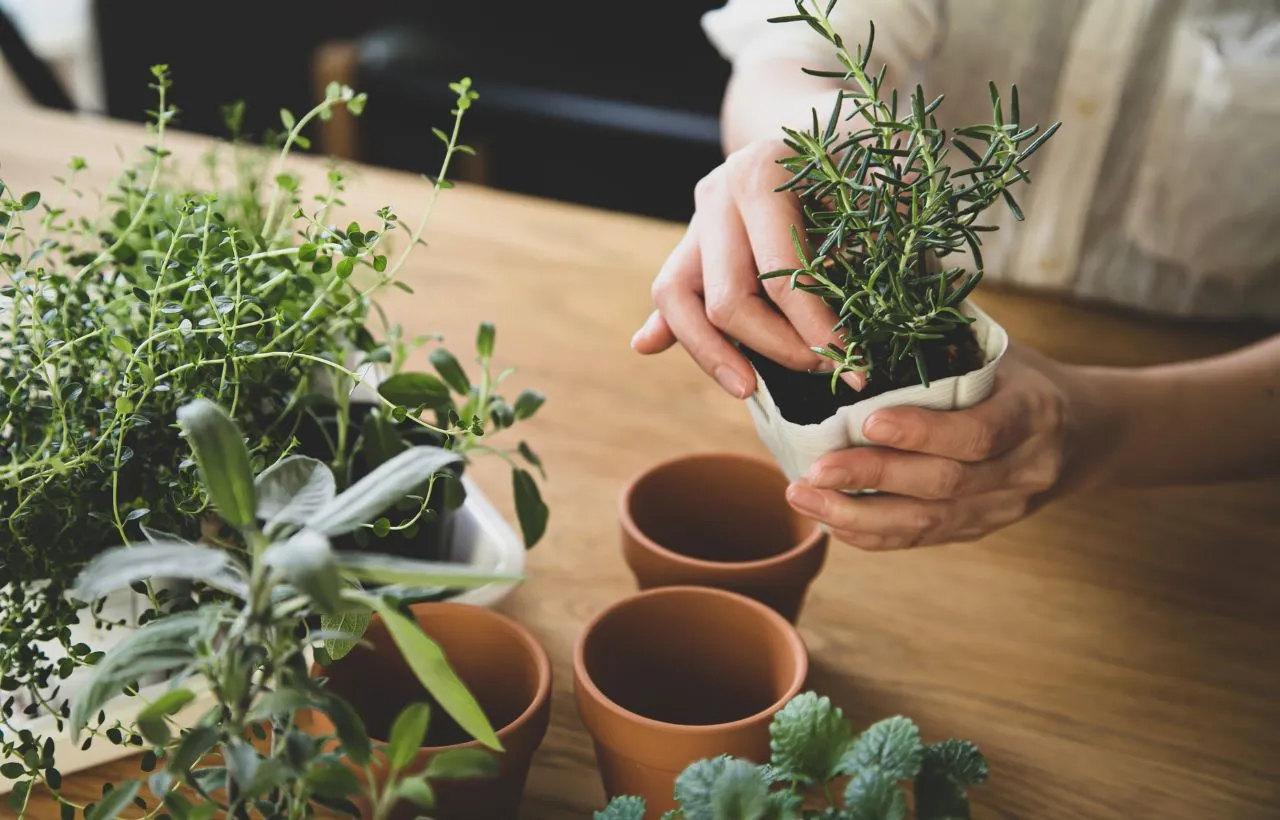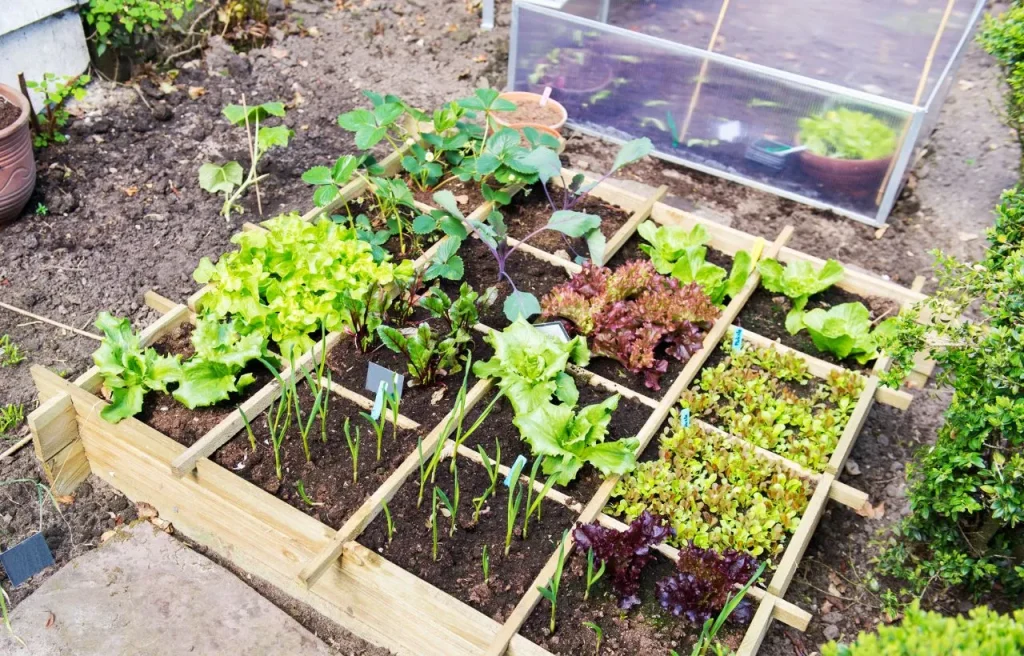Do you want fresh herbs in your kitchen to add a pleasant aroma to your homemade dishes? Are you considering herb varieties that can be grown quickly and add fragrance to your home? Then, you should continue reading this article to get enlightened in the proper direction. Fresh herbs add great fragrance and help prevent various illnesses. They add flavour, colour, and a pleasant aroma to dishes without adding extra salt, fat, or sugar. Here we’ll discuss some of the best herbs to grow indoors so that you can make them profitable, too. Oh yes! You have heard that right. You can raise the herbs at home and sell them in your community. Growing herbs isn’t difficult; you only need a workable plan, planting pots, and proper materials.
Buying herbs from the market is costly, whereas growing herbs at home aren’t. A report by Statista Research Department showed that spices and culinary herbs market revenue in the US increased to 9.5 billion dollars in 2021. It further affirms that this figure will continue to grow in the upcoming years due to high inflation worldwide. Having said so, why not grow herbs, enjoy their rich flavour, and save your grocery costs?
7 Best and Easy Herbs to Grow Indoors:
The best herbs to grow indoors can be identified by their simple characteristic, i.e., easy maintenance. By growing them, you’ll love to add delicious aromas to your dishes and maintain a fragrant atmosphere at home. In most parts of the northern US, herbs are best to grow indoors due to extreme weather changes. They mainly require a good balance between air circulation and humidity. However, if you still wish to grow them outdoors, you still can by meeting their required conditions. Do not forget to remove saucers from the herb containers in doing so. This article aims to guide you regarding indoor herb gardens, and we wish you a super happy read. We have gathered our top picks to make it an easy journey for you. Let’s learn some quick facts about our chosen herbs for you, their uses, unique characteristics, and dominant properties.
| Herb Name | Mature Height (inches) | Sun Exposure (for survival in winters) | Soil Needs |
| Mint | 18-36 | West-facing window | Good drainage |
| Parsley | 9-12 | West-facing window | Minimal fertilization, evenly moist soil |
| Lemon Balm | 12-24 | South-facing window | Average water needs, good drainage |
| Chives | 10-15 | West-facing window | Good drainage; requires average water |
| Basil | 18-24 | South-facing window | Evenly moist and high-quality potting soil |
| Thyme | 6-12 | South-facing window | Minimal fertilization, sharp drainage |
| Rosemary | 24-72 | South-facing window | Low to average watering need, sharp drainage |
Source: https://www.thespruce.com/herbs-to-grow-indoors-5220148
Herb Uses and Brief Descriptions:
Mint.
Mint is a tasty herb used in various flavouring drinks, teas, and foods. There are excellent medicinal properties of mint. For instance, it aids in improving irritable bowel syndrome and fights bad breath. A benefit of growing this herb indoors is that it is a fragrant herb. It will uplift your mood, and you’ll feel fresh. You can enjoy homemade mint tea to aid relaxation and better sleep.
Parsley.
Parsley has two main types, i.e., curly and flat-leaf. The former has more ornamental value, whereas the latter is full of culinary worth. You may also grow both to enhance flavour and beauty at home. Parsley has a unique characteristic, i.e., it adds a strong flavour to Italian dishes and everyone just loves it. Why not grow it and surprise your loved ones with nicely flavoured Italian dishes?
Lemon Balm.
Lemon balm is usually added to salads and soups to enrich their flavour. This refreshing herb scents your home naturally. Lemon balm is regarded as a calming herb, and it works well for anxious or stressed individuals. Moreover, children having stomach discomfort can significantly benefit from this anti-viral herb. However, lemon balm is prone to fungal infection; so, you need to care for it properly.
Chives.
Chives are a low-maintenance herb that continues to live for a longer time. These are mainly grown for their leaves; they add an oniony flavour to savoury dishes. It is a beneficial and one of the best herbs to grow all year round. Chives herb keep pest production away and act as a companion plant. Why not use chives to add more flavour to your breakfast omelette?
Basil.
Basil is a famous herb known for its antioxidant, anti-inflammatory and anti-bacterial qualities. It is rich in essential nutrients and fights various illnesses including stomach spasms, kidney problems, worm infections, loss of appetite, gastric conditions, etc. Basil is one of the best and easiest herbs to grow indoors and provide many health benefits.
Thyme.
Thyme herb is a pest repellent and is a delicious culinary herb. It also works as good medicine and helps fight dementia, cough, patchy hair loss, and several other conditions. Thyme is a key ingredient in various French, Italian, and Caribbean cuisines. You can make delicious foods and drinks by adding a little thyme to your dishes to enhance their flavour. It also relieves patients with a whopping cough, colic issues, and upset stomach. Are you having children and the elderly at home? Then, why not grow thyme in your indoor home garden and alleviate patients’ symptoms? Thyme is of the best medicinal to grow indoors that won’t cost you much.
Rosemary.
Rosemary is grown chiefly outdoors due to its woody aroma. However, it can quickly be grown indoors, especially when potted in containers and cared for appropriately. It has been used for centuries and helps alleviate problems related to muscle pain, memory loss, and the circulatory system. Rosemary is a cognitive stimulant herb that boosts alertness, focus, and intelligence.
Conditions for Indoor Herb Gardens: Beginner’s Guide:
Indoor kitchen herb gardening is an exciting hobby to adopt. It not only keeps your home scented but also provides fresh herbs right at your fingertips. Many herbs have medicinal properties or even act as antioxidants. Therefore, you should never lose an opportunity to grow herbs inside your home. If you are a beginner and looking for some wise tips in this regard, here’s what we have for you.
Most herbs can be grown indoors; however, you should pick ones that can thrive inside your home. A general rule is that any herb can be grown inside as far as you provide the right conditions for it. As long as you properly care for them, you do not need to worry about picking a specific kind of herb. The main conditions for growing herbs indoors include:
Strong Light.
Light intensity indeed plays a crucial role in the herbs’ flavour. So, place your herbs near a sunny window where they can get adequate light for about 6-8 hours. You can also consider choosing grow lights for indoor herb gardens if natural sunlight isn’t available.
Adequate Placement.
A general rule is to place your herbs in a south-facing window in winter if they are native to a warmer region than yours. Whereas herbs that like a calmer atmosphere grow best in a west-facing window.
Accurate Temperature.
The ideal temperature for most indoor herbs lies between 65-70 degrees which are usually compatible with most home environments.
Water Requirement.
Keep your herbs well moistened but water them as per requirement. The soil’s texture can gauge this. If you find it dry about 2 inches below the top, it’s time to water your herbs.
Containers with Drainage.
Always choose containers with drainage holes. It will allow the soil water to drain freely, and sufficient air will be available for the roots to grow. Also, place a saucer beneath the containers. It will keep their base well-protected.
Right Fertilizer.
Choose a nitrogen-rich fertilizer; it will promote leafy solid growth. Healthy herbs will add more to your homemade dishes and enrich their overall flavour.
Benefits of An Indoor Herb Gardens:

Imagine herbs in your indoor garden and how much fragrance they’ll bring. Besides elevating positivity levels and good mood,
s has numerous benefits. However, here we’ll discuss the top 3 benefits to make you well-informed.
Sustainable and Environment-friendly.
The store-bought herbs are not only costly but also add plastic to landfills. It contributes to a more significant waste problem that many people are unaware of. Why not invest in homegrown herbs to make your environment friendly and pollution-free? At least you can do this and contribute to the safety of your surroundings.
Cost-effective.
Herb shopping is quite expensive, around 3.00$ for even a tiny package. It seems like a meager amount but imagines if you have to buy multiple herbs and the additional costs they would bring. Why not instead grow herbs inside your home and save these extra costs? Also, homegrown herbs are fresh and thrive for longer than packet herbs.
Safety.
Herbs not only add beauty to your home but also offer good peace of mind. You aren’t sure how far the market-bought herbs have been placed in the store, and you doubt their freshness. You can use fresh herbs in your culinary dishes with an indoor herb garden and benefit from their medicinal uses, too.
FAQs:
Which herb is easiest to grow indoors?
Rosemary, mint, oregano, chives, thyme, and basil are some of the best herbs to grow indoors. You can start your gardening journey with these herbs even if you are a beginner. They are easy to grow and add great flavour to your dishes.
Which herbs are better indoors?
The best herbs to grow indoors include plenty of options-for instance, chives, mint, thyme, bay laurel, chervil, etc. They can thrive well inside the home without requiring special conditions.
What herbs can you grow year-round indoors?
Mentha (mint), bay laurel, parsley, lemon verbena, thyme, basil, chives, sage, and rosemary are some herbs that can be grown all year round. You’ll love growing these herbs in your homegrown garden, and they will ravish your surroundings.
What is the best herb to grow at home?
Parsley, rosemary, basil, chives, lavender, thyme, and oregano, are some must-have herbs and are relatively easy to grow at home. They are also regarded as some of the best-smelling herbs to grow indoors that you’ll simply love.
Concluding Thoughts:
Growing an indoor herb gardens is both fun and valuable. It will beautify your home and you can enjoy good flavoured foods all year round. However, it would be best if you cared for them appropriately so that they can bloom well. Also, show your herbs some love by gently brushing your hand on their tops. This movement will encourage their stems to become stronger. Follow the above tips to start your indoor herb gardens today. Cheers!

